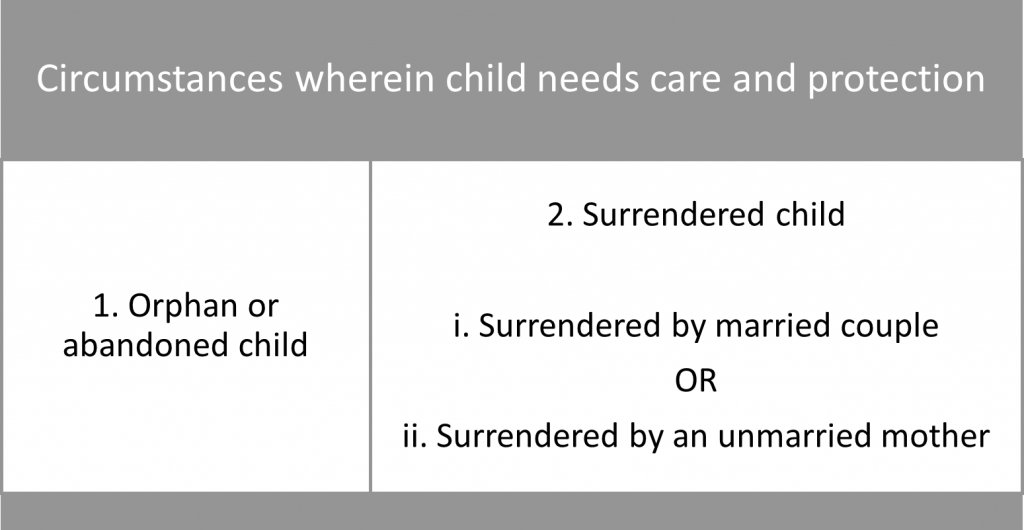Kerala High Court says that for adoption child born to live-in couple is same as being born to a married couple
In a recent writ petition at the High Court of Kerala, the Hon’ble Judges A.MUHAMED MUSTAQUE & DR.KAUSER EDAPPAGATH, JJ. in April, 2021 held by way of an Order that in the case of adoption under the Juvenile Justice Act, 2000 (“JJ Act”) biological parents of the child in a live-in relationship have to follow the same process of adoption as a married couple and that the child born to the live-in couple shall be treated as being born to a married couple.
The brief facts of this case are that Anita (names changed) the biological mother and John, the biological father were in a live-in relationship and had a child together. However, because of the opposition from their kin and kith to their union, John briefly left the relationship and Anita was not able to contact him. Anita then unable to bring their daughter up as a single mother, surrendered the child in adoption.
The Child Welfare Committee (CWC) which took the child in, followed the paperwork requirements for when an unwed mother surrenders her child. They failed to take into account the fact that the child’s birth certificate had both parents’ names. After she signed the deed of surrender as an unwed mother, the child was surrendered and subsequently taken into adoption by the adoptive parents. John, the biological father returned to Anita after the adoption was complete and they both approached the Court via a habeus corpus petition to reclaim their child. The Court did not admit the petition as proceedings under the JJ Act had been completed but under section 102 of that Act, it suo moto converted it into a revision petition.
The JJ Act and Adoption Regulations, 2017 provide two pathways for the CWC to follow:

‘In the matter of married couple, the procedure ensures that both the parents execute deed of surrender and; if the child born to a married couple and surrendered by one of the biological parent, and whereabouts of the other parent are not known, the child shall be treated as an abandoned child and procedure under Regulation 6 will have to be followed. This procedure mandates an inquiry to trace out the biological parents or the legal guardians’.
After referring to various parts of the JJ Act and the Adoption Regulations, 2017, the Court held that ‘interpretation of law must be contextually relevant based on the text of legislation.’
The Court held that the married couple or unwed mother has to be understood in the backdrop of juvenile justice. If a mother recognizes and acknowledges her relationship with the biological father (as she did by having his name on the birth certificate and acknowledging their live-in relationship), then she cannot be treated as an unwed mother under the JJ Act. Only when the mother does not wish to recognize or does not recognize the child’s father then she can be treated as an unwed mother in this law. ‘If the artificial difference of the couple distinguishing them ‘legally married’ and ‘not legally married’ has no bearing in the ultimate object of law, the court must adopt an approach of interpretation to serve the object of law giving it a meaning to promote law and not to denounce the same. The dominant object of law in making the distinction between the married couple and unmarried mother is in the context of the nature of inquiry to be conducted for tracing the biological parents to restore the child with biological parents or guardian.’
The judgement also throws light on how the biological father’s rights need to be prioritized by assigning meaning to provisions consistently with the object of the law. ‘It is for the woman to recognize and decide on recognition of fatherhood of child. If she chooses the preference to acknowledge the biological father at the time of conceiving, the father has every right to be recognized as a biological father. If at the time of conception, she has not recognized the right of fatherhood, in the context of JJ Act, a man has no right to recognize himself as the biological father, except with her consent and; she continues to be recognized as an unwed mother for the purpose of JJ Act.’
The judgement also took into account how the woman’s decisional autonomy is paramount when it comes to her declaring or acknowledging the child’s biological father irrespective of their marital status. It did however note that her consent with respect to the same decides the rights of the biological father on their child.
The judgement went on further empathize with the struggles of a single mother and how the system fails to support women bringing up children alone, thus making other women like Anita give up the child in adoption due to lack of a support system.
The Court finally held that since the proceedings leading up to the declaration of the child under the JJ Act as ‘free for adoption’ fall, the adoption itself stands illegal. It ordered the CWC to restore the child to her biological parents.
– Veda Thakkar, Associate



